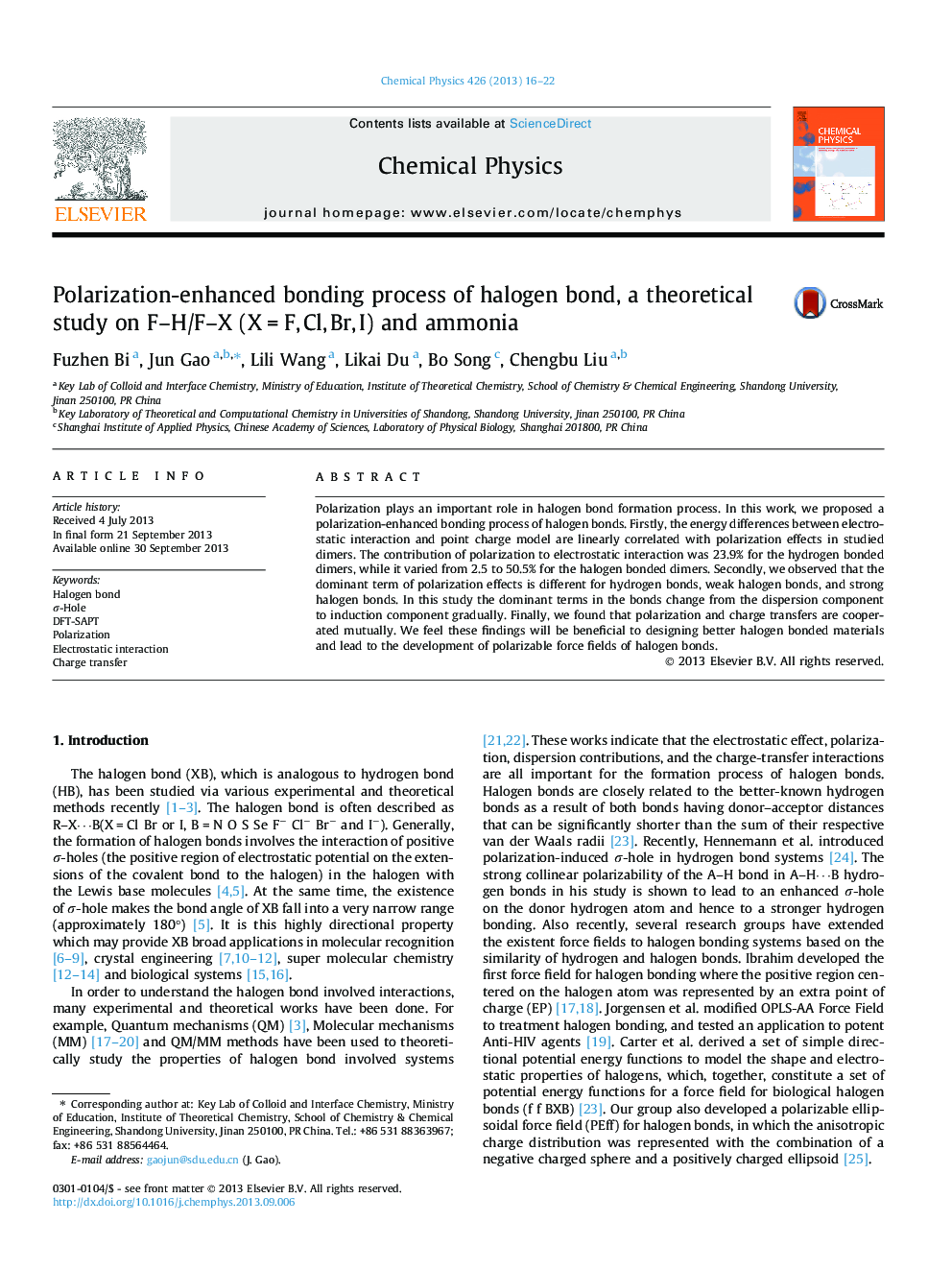| Article ID | Journal | Published Year | Pages | File Type |
|---|---|---|---|---|
| 5373829 | Chemical Physics | 2013 | 7 Pages |
â¢A polarization-enhanced bonding process of halogen bonds is proposed.â¢The contribution of polarization effects is 23.9% for the hydrogen bond dimer.â¢The contribution of polarization effects varies from 2.5 to 50.5% for halogen bond dimers.â¢The polarization and charge transfers are cooperated mutually.
Polarization plays an important role in halogen bond formation process. In this work, we proposed a polarization-enhanced bonding process of halogen bonds. Firstly, the energy differences between electrostatic interaction and point charge model are linearly correlated with polarization effects in studied dimers. The contribution of polarization to electrostatic interaction was 23.9% for the hydrogen bonded dimers, while it varied from 2.5 to 50.5% for the halogen bonded dimers. Secondly, we observed that the dominant term of polarization effects is different for hydrogen bonds, weak halogen bonds, and strong halogen bonds. In this study the dominant terms in the bonds change from the dispersion component to induction component gradually. Finally, we found that polarization and charge transfers are cooperated mutually. We feel these findings will be beneficial to designing better halogen bonded materials and lead to the development of polarizable force fields of halogen bonds.
Graphical abstractDownload full-size image
